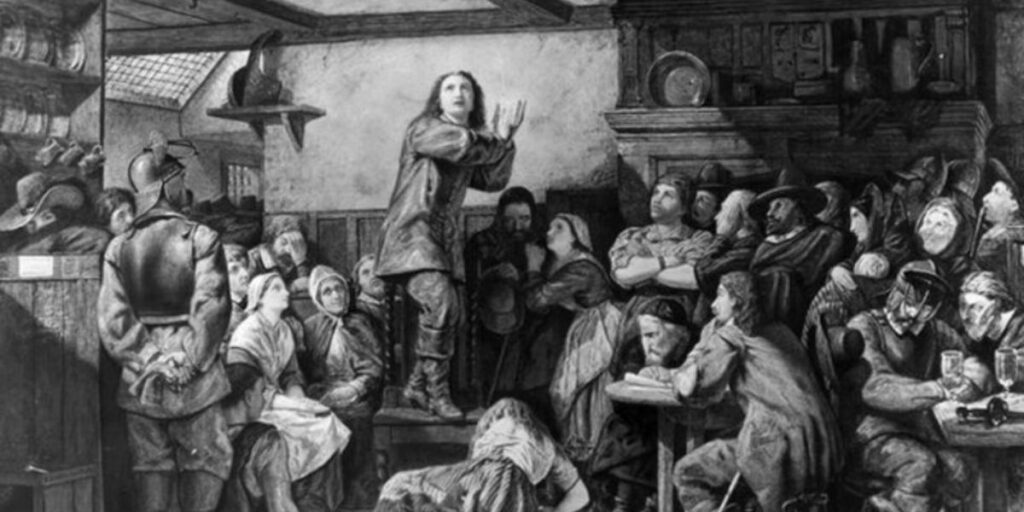The question “Is Quakerism a cult?” is one that has surfaced frequently, leading to misunderstandings and misconceptions about this distinctive spiritual movement. Officially known as the Religious Society of Friends, Quakerism has a rich history rooted in Christianity, emphasizing individual spiritual experiences and a commitment to social justice. However, the term “cult” often carries negative connotations, suggesting manipulation or isolation. This article will explore the essence of Quakerism, its beliefs, practices, and whether it truly fits the controversial label of a cult.
Understanding Quakerism
Quakerism originated in the mid-17th century during a period of religious turmoil in England. Founded by George Fox, the movement emerged as a response to the rigid doctrines of established churches. Quakers hold that every individual possesses the “Inner Light,” or the ability to directly connect with the Divine. This belief fosters an emphasis on personal spirituality, advocating for individual relationships with God rather than reliance on clergy or formal religious structures.
Core Tenets of Quakerism
The core principles of Quakerism include:
- Simplicity: Quakers strive to live simply, minimizing material excess and focusing on what is essential for a meaningful life—namely, their relationship with God and service to others.
- Peace: Known for their commitment to non-violence, Quakers actively promote peace and have historically been involved in social justice movements, such as abolition and civil rights.
- Integrity: This principle calls for honesty and authenticity in both words and actions. Quakers believe that one’s conduct should reflect their values and beliefs.
- Community: Quakerism emphasizes the importance of communal worship and mutual support. Friends gather regularly in meetinghouses to share experiences and encourage each other on their spiritual paths.
- Equality: Quakers uphold the belief that all individuals are equal before God, fostering a commitment to social justice and opposing all forms of discrimination.
The Structure of Quakerism
Unlike many religious organizations, Quakerism does not have a centralized authority or formal hierarchy. It operates through local meetings, which are independent yet part of a broader network. This decentralized structure promotes diversity in beliefs and practices, allowing for a rich tapestry of spiritual expression within the movement.
Different Branches of Quakerism
Over time, Quakerism has evolved into various branches, each interpreting its core beliefs and practices in unique ways. The two primary branches are:
- Evangelical Quakers: This group emphasizes a personal relationship with Jesus Christ and often engages in evangelistic efforts. They typically hold more traditional Christian beliefs.
- Liberal Quakers: This branch prioritizes personal experience over strict doctrine, often embracing diverse spiritual paths and social justice issues. They may incorporate elements from various religious traditions into their practices.
Both branches share fundamental principles but differ in their approaches to worship, community, and scriptural interpretation.
Criticism and Controversies
Despite its focus on love, peace, and community, Quakerism has faced criticism and controversy. Some detractors label it a cult based on several key factors:
Ambiguity of Beliefs
Quakerism’s lack of a formal creed or set beliefs can lead to misunderstandings. Critics argue that this openness allows for the potential manipulation of followers, as individuals may interpret the “Inner Light” in varying ways. However, many Quakers view this flexibility as a strength that encourages personal spiritual growth and fosters diversity.
Isolation and Group Dynamics
Similar to many religious communities, some Quaker groups may become insular, leading to accusations of groupthink. Critics assert that this dynamic can suppress dissent and discourage members from questioning established norms. Nonetheless, Quakerism’s emphasis on listening to others and valuing different perspectives aims to counteract this potential pitfall.
Intense Spiritual Experiences
The profound spiritual experiences reported by some Quakers may be misconstrued as manipulative by outsiders. Critics often view communal worship practices and silent meditation as means of control. Quakers argue that these practices are intended to foster genuine connections with the Divine and promote self-reflection.
The Positive Contributions of Quakerism
While some may hastily label Quakerism as a cult, it is crucial to recognize the movement’s many positive contributions to society.
Advocacy for Social Justice
Quakers have a storied history of advocating for social justice causes, including abolition, civil rights, and peace initiatives. Their commitment to equality and non-violence has positioned them as key players in various movements aimed at promoting human rights and social change.
Educational Initiatives
Many Quakers are involved in educational endeavors, founding schools and colleges that emphasize values such as social responsibility and community service. Quaker organizations also engage in humanitarian efforts worldwide, providing aid to those in need.
Promoting Peace and Nonviolence
Quakers are often at the forefront of peace activism, advocating for conflict resolution and nonviolent solutions to disputes. Their historical role in promoting pacifism during wars and conflicts demonstrates a steadfast commitment to their principles.
Addressing the “Cult” Label
The term “cult” can often be applied haphazardly, leading to confusion and misrepresentation of groups like the Quakers. To address whether Quakerism is indeed a cult, one must consider several factors:
Control and Manipulation
Cults are often characterized by authoritarian leadership and coercive control over members. Quakerism, with its decentralized structure and emphasis on individual spiritual experiences, does not fit this description. There is no single leader or dogma that dictates beliefs and practices for all Quakers.
Freedom of Belief
In cults, dissent is typically discouraged or punished. In contrast, Quakerism promotes open dialogue and respects individual interpretations of faith. Members are encouraged to explore their spirituality without fear of repercussions.
Community and Support
Cults often isolate members from the outside world, fostering an environment of dependency. Quaker communities emphasize mutual support, encouragement, and connection to broader society, enabling individuals to engage with the world outside their faith.
Conclusion
Quakerism, with its focus on personal spirituality, social justice, and community, represents a complex and multifaceted movement. While some may label it a cult due to its lack of formal doctrine and communal practices, such assessments often overlook the positive contributions of the Religious Society of Friends to society.
Ultimately, whether Quakerism is perceived as a cult or a legitimate spiritual community depends on one’s perspective. However, its values of simplicity, peace, integrity, community, and equality continue to inspire individuals worldwide. As society grapples with issues of social justice, personal spirituality, and community, the Quaker tradition remains relevant, encouraging individuals to seek a deeper understanding of themselves and their place in the world.
FAQs
What is Quakerism?
Quakerism, or the Religious Society of Friends, is a spiritual movement that emphasizes individual experiences with the Divine, simplicity, peace, integrity, community, and equality.
Why do some people consider Quakerism a cult?
Some critics label Quakerism a cult due to its lack of formal doctrine, perceived isolation, and the intense spiritual experiences of some members, which they believe may lead to manipulation.
What are the main principles of Quakerism?
The main principles include simplicity, peace, integrity, community, and equality, guiding Quakers in their spiritual journeys and actions in the world.
Are there different branches of Quakerism?
Yes, the two primary branches are Evangelical Quakers, who emphasize a personal relationship with Jesus, and Liberal Quakers, who prioritize individual experience and diverse interpretations of spirituality.
How have Quakers contributed to society?
Quakers have played significant roles in advocating for social justice, education, and peace initiatives, promoting humanitarian efforts and human rights throughout history.







